|
|
Lecturer Biographies
2013
|
|
|
François Flückiger |
CERN |
 |
|
François Flückiger is an Internet
veteran and was selected for induction in 2013 in the
Internet Hall of Fame together with 31 other inductees. Director of the
CERN School of Computing, he is Knowledge and Technology Transfer Officer
for Information Technologies at CERN .
Before joining CERN in 1978, he
was employed for five years by SESA in Paris. At CERN, he has been in
charge of external networking for more than 12 years and held positions
in infrastructure and application networking, including the management
of CERN's World-Wide Web team after the departure of the Web inventor
Tim Berners-Lee. He is an adviser to the European Commission, a member
of the Internet Society Advisory Council and the author of the reference
textbook "Understanding Networked Multimedia" as well as more than 80
articles. He has 40 years
of experience in networking and information technologies. François Flückiger graduated from the Ecole Supérieure d'Electricité in 1973 and
holds an MBA from the Enterprise Administration Institute in Paris in
1977. |
|
| |
|
Benedikt Hegner |
CERN |
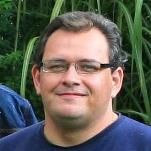 |
|
Benedikt Hegner studied
physics, history and philosophy at the RWTH Aachen University and
obtained his physics degree working on the integration of the silicon
tracker of the CMS experiment at CERN. For his PhD he joined DESY in
Hamburg and carried out an analysis on the spin of the top-quark. In
parallel, he implemented core parts of the CMS analysis framework. He
then joined CERN and took over the coordination of the CMS analysis
software. He has been involved in CERN's software development activities
since then. Currently, he is responsible for the Software Process &
Infrastructure project and the LCG software releases. In addition, he is
lead developer for a new common experiment framework, that allows to
exploit the parallelism of modern CPU and GPU architectures. |
|
| |
|
Bob
Jacobsen |
University of California at Berkeley -
USA |
|
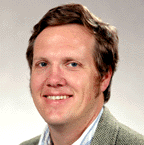 |
Bob
Jacobsen is an experimental high-energy physicist and a faculty member at the University of California, Berkeley.
He's a member of the BaBar collaboration, where he lead the effort to create the
reconstruction software and the offline system.
He has previously been a member of the ALEPH (LEP) and MarkII (SLC)
collaborations. His original academic training was in computer engineering,
and he worked in the computing industry before becoming a physicist. |
|
| |
| Sebastian
Lopienski |
CERN |
|
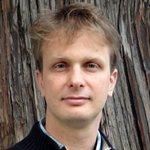 |
Sebastian Lopienski is CERNs deputy Computer Security Officer. He works on
security strategy and policies; offers internal consultancy and audit
services; develops and maintains security tools for vulnerability assessment
and intrusion detection; provides training and awareness raising; and does
incident investigation and response. During his work at CERN since 2001,
Sebastian has had various assignments, including designing and developing
software to manage and support services hosted in the CERN Computer Centre;
providing Central CVS Service for software projects at CERN; and development
of applications for accelerator controls in Java. He graduated from the
University of Warsaw (MSc in Computer Science) in 2002, and earned an MBA
degree at the Enterprise Administration Institute in Aix-en-Provence in
2010. His professional interests include software and network security,
distributed systems, and
Web and mobile technologies.
|
|
| |
|
Andrzej Nowak |
CERN |
|
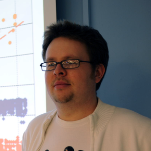 |
Andrzej Nowak is a member of the CERN openlab CTO office,
leading the openlab collaboration with Intel in the Platform Competence
Center (PCC). While the PCC focuses mainly on efficient computing solutions
for the Large Hadron Collider, the openlab is a broader research partnership
between CERN and HP, Huawei, Intel, Oracle and Siemens, with the aim of
evaluating and advancing cutting edge IT in a demanding environment. Andrzej
has been with openlab since January 2007, when he joined as a Marie Curie
Fellow sponsored by the European Commission. Since then, his research
concerned high throughput computing, modern parallelism challenges, and
recently problems from the Big Data domain. Andrzej also pioneered the
educational activities of the openlab: he co-founded multiple teaching
series that, over the course of six years, have trained over a thousand
scientists and engineers in dozens of workshops, tutorials and international
computing schools.
|
|
| |
|
Alberto Pace |
CERN |
|
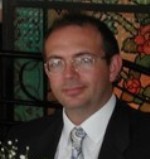 |
Alberto Pace is a member of the IT department at CERN where he
leads the Data Management group ensuring a coherent development process for
Physics Data management activities, strongly driven by operational and user
needs. He has more than 20 years experience in computing services,
infrastructure, software engineering, accelerator control and accelerator
operation. He graduated in Electronic Engineering from Politecnico di Milano
(Italy) in 1987.
|
|
| |
|
Danilo Piparo |
CERN |
|
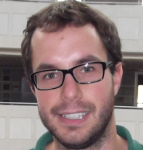 |
Danilo Piparo studied at the University of Milano Bicocca and obtained his
degree in Particle Physics at the Karlsruhe Institute of Technology in
Germany, studying the physics of hadronic jets and statistical methods for
the Higgs discovery as member of the CMS collaboration. He the joined CERN
working for the same experiment, coordinating its Physics validation group
to then join the CERN Software Development for the Experiments (SFT) group.
As an expert of parallel software development and performance tuning, always
focussed on improving the efficiency of data processing in scientific
computing. His main activities are concentrated on the parallelisation of
the CERN software suite in order to make it suited for the many cores era. |
|
| |
|
Ivica Puljak |
University of Split - Croatia |
|
%20(2).jpg) |
Ivica Puljak is Professor of physics at University of Split, Faculty
of Electrical Engineering, Mechanical Enginnering and Naval
Arhitecture (FESB). He completed his BsC studies in electrical
engineering at FESB and MsC studies in particle physics at
University of Zagreb. He has been working for his PhD thesis at
Laboratory Leprince Ringuet (LLR) at Ecole Polytechnique, Palaiseau,
and got his PhD in particle physics from University Paris VI in
2000. In 2011/2012 he was research associate at CERN. He is a member
of CMS collaboration since 1994 and MAGIC collaboration since 2009.
His research interests are construction of the electromagnetic
calorimeter of the CMS detector, search for the Higgs boson and
astroparticle physics.
|
|
|
|
| Benjamin
Radburn-Smith |
Purdue University, U.S.A. |
|
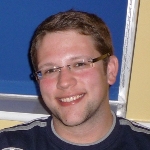 |
Benjamin Radburn-Smith has recently joined Purdue University as a
Postdoctoral Research Associate. Benjamin studied for his PhD in the U.K.
jointly with the University of Manchesters Particle Physics Group and the
STFC Rutherford Appleton Laboratorys Particle Physics Department, where
he was based. He joined the RAL CMS group and has been a member of the
experiment since 2009. For his research, Benjamin studied multivariate
visualisation techniques which can be used in conjunction with a physics
analysis. The visualisations of greatest interest include parallel
coordinates and the grand tour. He is interested in physics beyond the
Standard Model and works within the CMS Exotica group. He recently
investigated collimated groups of leptons called Lepton Jets, which are
possible signatures of new physics.
|
|
|
|
|
|
Gjĝvik University College - Norway |
|
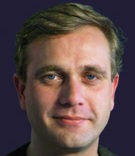 |
Dr. Are
Strandlie received his Master of Science degree in Theoretical Physics in
1995 and his Doctor of Science degree in Experimental Particle Physics in
2000, both from the University of Oslo. He was a Research Fellow at CERN
between 2001 and 2003, where he was working on track reconstruction software
development for the CMS Tracker. Strandlie held a position as Associate
Professor of Physics at Gjĝvik University College between 2003 and 2006, and
is currently Professor of Physics at the same institution. He also holds a
position as Adjunct Professor at the Department of Physics, University of
Oslo. He is now involved in the ATLAS experiment at CERN. Strandlie's
research interests are concentrated around various aspects of the analysis
of high-energy physics data, including the development and application of
adaptive methods for track reconstruction and probabilistic approaches to
particle mass determination.
|
|
|
|
|
|
|
Assistant to Lecturer
Biographie 2013 |
|
|
| Giuseppe Lo
Presti |
CERN |
|
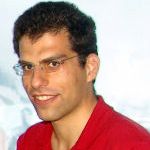 |
Giuseppe Lo Presti studied Computer Science Engineering in Palermo. He
joined CERN in 2004 to complete his PhD studies with a Thesis on
Peer-to-peer technologies for Data Acquisition systems in the CMS
Experiment. As a post-doc INFN fellow he then joined the CERN IT Department,
where he has been one of the major contributors in the software design and
development of the CERN Advanced Storage manager (CASTOR), a Hierarchical
Storage Manager used at CERN for all physics data (tens of Petabytes). He
currently holds a staff position in the Data and Storage Services group,
where he is responsible for the database backend and the Grid Storage
Resource Manager (SRM) interface of the CASTOR system.
|
|
|
|
|
Andreas J. Peters |
CERN |
|
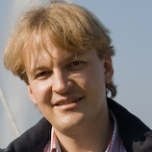 |
Andreas Peters is member of the CERN data management
group. Since 1997 he worked as a student for the NA48 Collaboration at CERN
in the development of the data acquisition system and a zero suppression
system for the electro-magnetic calorimeter. He finished his PHD in physics
at the University of Mainz in 2002 studying direct CP-violation in the
neutral kaon system. 2002 he joined as a research fellow the ALICE
experiment doing mainly development of GRID software and data management
tools. From 2004 on he stayed at CERN working for the European grid project
EGEE focused on development of end-user tools for distributed analysis and
distributed data management. In 2008 he joined the CERN data management
group doing research and development for future data management at CERN.
|
|
|
|
|
|

